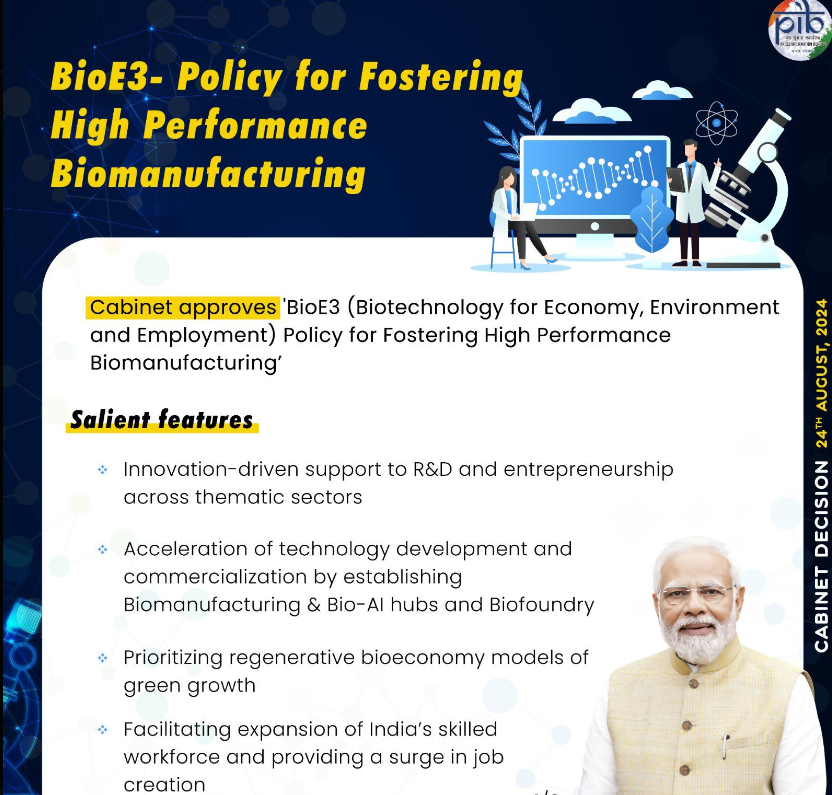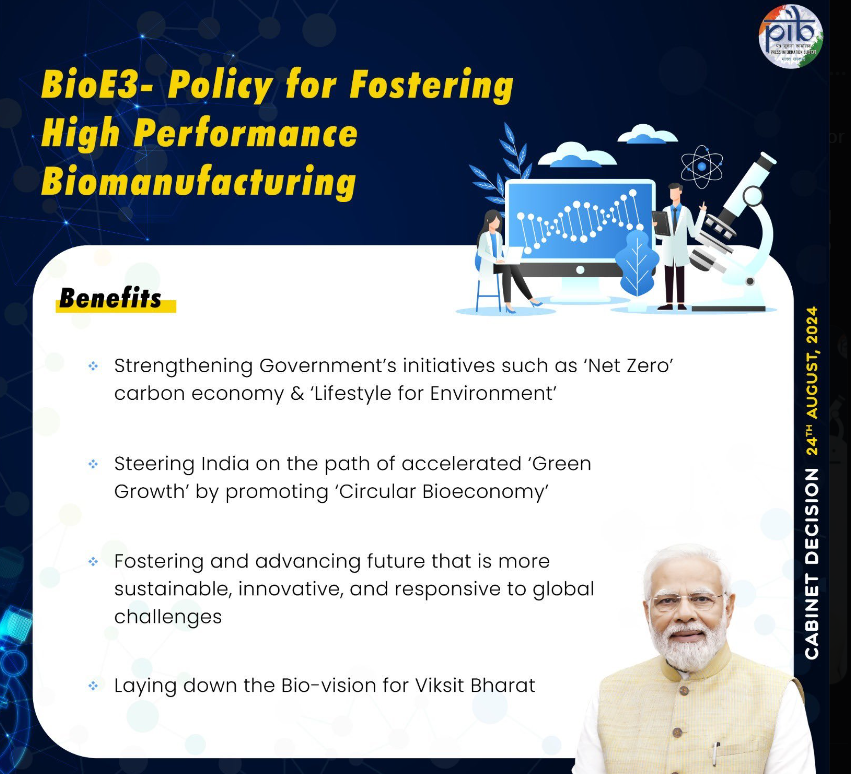27 August 2024 : PIB Summary For UPSC
1. New Bioeconomy policy rolled out by the central government is set to place India as a global leader
(Source – https://pib.gov.in/PressReleseDetail.aspx?PRID=2048873)
| Topic: GS2 – Governance |
| Context |
|


Introduction
- The BioE3 (Biotechnology for Economy, Employment, and Environment) Policy, recently launched by the central government, aims to transform India into a global biotech powerhouse.
- By focusing on sustainable bio-manufacturing, innovation, and employment generation, this policy positions India to lead in the bioeconomy and 4th Industrial Revolution.
Growth of India’s Bioeconomy
- Remarkable Surge: India’s bioeconomy has grown from $10 billion in 2014 to $130 billion in 2024, with a projected value of $300 billion by 2030.
- Economic Impact: The BioE3 policy will reignite growth and position India at the forefront of the 4th Industrial Revolution, contributing significantly to the ‘Make in India’ initiative.
Key Focus Areas
- Transition to Bio-Based Economy:
- Shift from traditional chemical-based industries to sustainable bio-based models.
- Circular Bioeconomy:
- Promotes recycling and waste reduction through biomass utilisation, reducing carbon footprints.
- Climate Action:
- Aims for net-zero carbon emissions through innovative waste management, such as biomass, landfills, and greenhouse gases.
- Ethical Biosafety:
- Emphasises global regulatory harmonisation and aligning with international standards for safety.
Innovation and Infrastructure
- Bio Manufacturing Hubs:
- Establishes hubs for large-scale production and commercialization of bio-based products, such as mRNA vaccines.
- Bio-AI Hubs:
- Integrates artificial intelligence to analyse biological data, fostering innovation in gene therapies and food processing.
Employment Generation
- Focus on Tier-II and Tier-III Cities:
- Bio manufacturing hubs will be established in smaller cities, creating jobs and boosting local economies by utilising local biomass resources.
Conclusion
- The BioE3 policy is a game changer, fostering sustainable economic growth and environmental stewardship.
- With its focus on bio-based industries, innovation, and job creation, it not only contributes to India’s ‘Make in India’ initiative but also drives the nation’s vision of becoming a developed and sustainable global leader.
| PYQ: How can biotechnology improve the living standards of farmers? (250 words/15m) (UPSC CSE (M) GS-3 2019) |
| Practice Question: Discuss the significance of India’s BioE3 Policy in fostering economic growth, innovation, and sustainability within the biotechnology sector. (250 Words /15 marks) |




